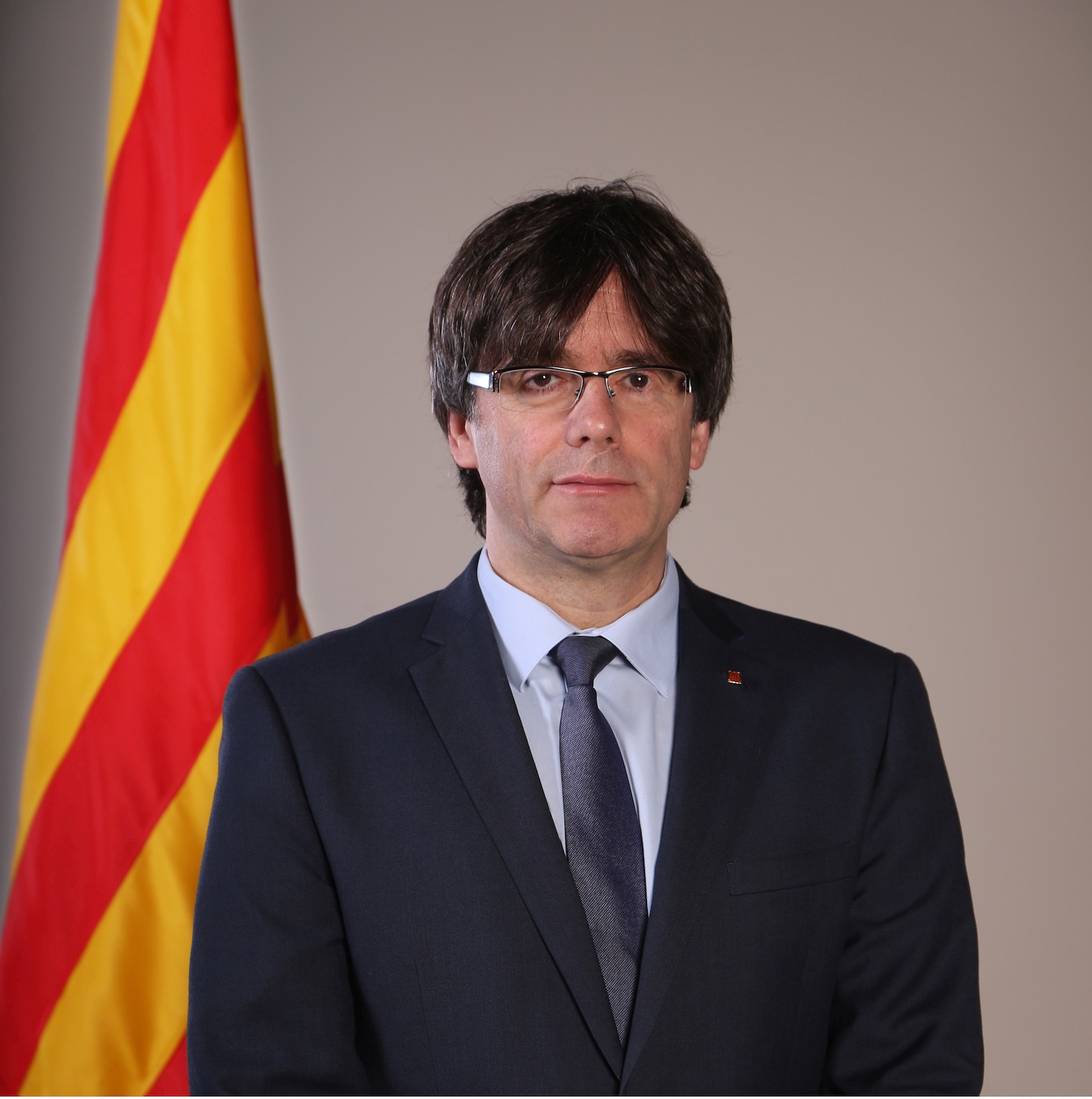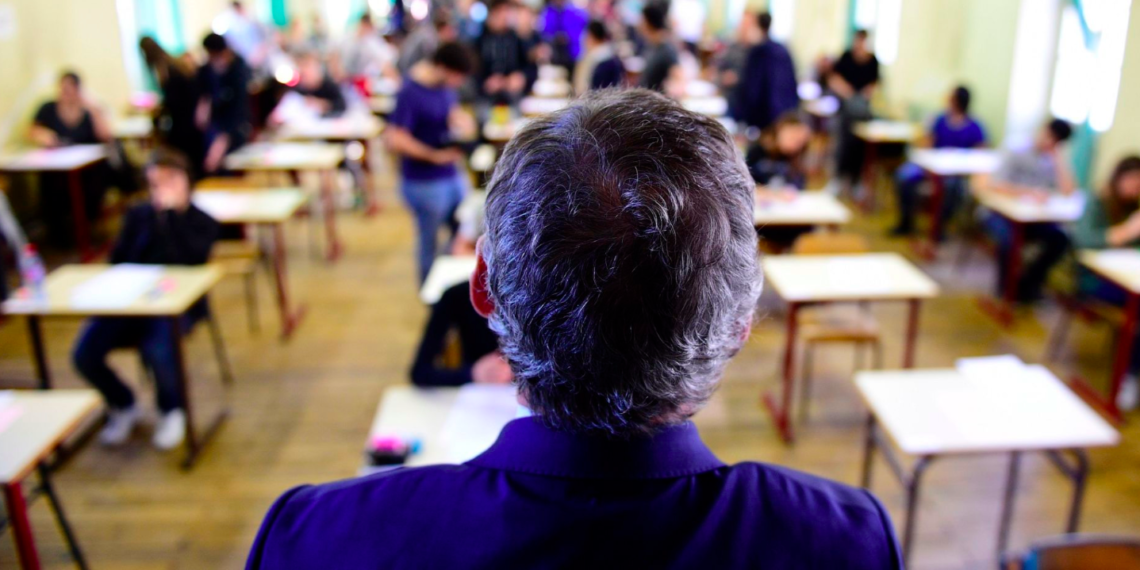“My daughter was crying inconsolably when she left school on Monday,” said Lourdes, the mother of a ten-year-old girl who was reportedly attacked by her teacher at her school near Barcelona in Spain’s autonomous community of Catalonia.
The events took place last month after the girl wrote “Viva España” and scribbled a Spanish flag in her class’ end of year album. Her teacher took her by the shoulders and shook her, making her fall, then grabbed her by the neck and dragged her out of the classroom.
Lourdes’ daughter was discharged from the hospital with a prescription for painkillers to manage injuries to her back and hands, but psychological scars remain for a child who does not understand what she did wrong. After the traumatic experience, she does not ever want to return to school.
Decentralization of Spain’s Education System
When the education system was decentralized to Spain’s autonomous communities towards the end of the 20th century, the Catalan nationalist establishment saw schools as crucial to nation-building, establishing the (still ongoing) Programa 2000. This was a public policy strategy based on one non-negotiable premise: the presence of Spain, as an inclusive state, as a pluralistic culture, and even as part of a global linguistic community, was going to be squeezed out of Catalan life for good.
In its place, nationalist policy-makers imposed a program of linguistic and cultural “immersion.” Its socio-political consequences were easily predictable. Conveniently, they included the perpetuation of nationalist rule in a community that self-governs every aspect of public life – apart from borders and airports.
Such monopoly of public resources, media, schools, and institutions brought with it a lack of democratic scrutiny that allowed systemic corruption to fester, unchallenged, under the threat of being branded an “enemy of Catalonia” by the all-controlling and ever-present regional administration and its many satellites.
Nationalist Pressure

When it came to teaching staff, the “selection” process was helpfully streamlined: while Catalan speakers could apply for a vacancy anywhere in Spain, only speakers of Catalan are likely to apply for vacancies in Catalonia. The effects of the policy were mutually reinforcing: attracting a carefully defined educational profile to the teaching profession; contributing to the departure of “uncomfortable” professionals; and ensuring that the focus of the Catalan education system remained militantly localistic, exempt from Spanish “contamination.”
This Big Brother-style dystopia includes “linguistic spies” in school playgrounds, tasked with eavesdropping on children’s conversations to detect Spanish speakers.
Nationalist pressure presents itself at every stage of education: in the most recent university access exams, invigilators only issued students with the Catalan version of the exam. Despite being entitled to both and to choosing which one to attempt, candidates who preferred the Spanish script were forced to raise their hand and ask for it in examination halls hosting hundreds of fellow students. Invigilators were instructed to take note of their names and to mark such requests as an “incident” in their reports.
Educating ‘Purer’ Catalans
The exclusionary ambitions of the nationalist elites run even deeper. The Catalan government’s exercise in social engineering needed to be more profound to educate “purer” Catalans. For instance, the working classes of Barcelona’s “red belt” remained unwavering in their dual identity as bilingual Catalans and Spaniards. They kept voting accordingly too, despite being grossly underrepresented by an electoral system that favors the rural vote from the predominantly nationalist villages of Gerona and Lérida.

Overall, however, the majority of Catalonia’s society felt comfortable in their own skin and did not wish to be stripped of any of the layers that made them who they were.
History of Catalonia
Francisco Oya is one such Catalan. Oya is a professor of history at the Joan Boscà college in Barcelona. In January 2019, following a secretive investigation, he was sentenced to ten months of unpaid suspension by the Catalan education authorities. When Oya asked the inspector about the reasons for his “gross misconduct,” he was told that the class materials that he used “made Catalan nationalists look bad.”
These complementary materials were extracted from two prestigious academic publications: Racismo y xenofobia en el nacionalismo catalán and La raza catalana. These volumes rightly contextualize the origins of Catalan and other nationalisms in race-based theories of the 19th century. They were entirely pertinent when explaining the history of modern and contemporary Catalonia, as perhaps best illustrated by the current incumbent of the Catalan government, Quim Torra, in his supremacist tirades against Spanish-speaking children.
In 2015, Oya wrote a painstakingly rigorous report about the Catalan History curriculum. In it, he exposed hundreds of cases of manipulation, deliberate omission, and false facts. These ranged from consciously avoiding the term “Hispania” when referring to the Iberian Roman Empire to anachronistically referring to Catalonia as far back as in the Pre-History section of the syllabus. In the medieval and modern history chapters, all historical events were presented as a confrontation between virtuous, civilized Catalans, and oppressive, ignorant and violent Spaniards, often visually illustrated with grotesque caricatures.
#AcosoEscolar El acoso escolar está empezando a ser un problema grave en Cataluña. No sólo hay acoso de alumnos a alumnos (lo habitual). Empezamos a tener acoso de profesores a alumnos (IES El Palau) y acoso de la administración educativa a docentes (IES Joan Boscà). pic.twitter.com/VUWDPyQhFR
— Francisco Oya (@FranciscoOya1) May 2, 2018
Francisco Oya has suffered demonstrations attended by his own colleagues, as well as countless threats and insults. He was one of the teachers sharing their harrowing experiences at the U.N.’s Human Rights Commission in Geneva earlier this month. These teachers reported how studying in Spanish in the Catalan education system is now impossible for most. Ignoring judicial rulings, the Catalan authorities deny the right to bilingual education to those students who request it.
Eye-opening studies by the Assembly for a Bilingual School in Catalonia detail how parents who want their children to study in their mother tongue are singled out, isolated, and targeted with institutional bullying. Ultimately, they are often condemned to either putting up with the status quo, to the detriment of their child’s academic performance, or to leave Catalonia altogether, a “solution” that has seen a significant internal movement of people over the past few decades.
Many, as happened to Lourdes’ daughter, leave their land in tears.
Disclaimer: The views and opinions expressed here are those of the author and do not necessarily reflect the editorial position of The Globe Post.





















